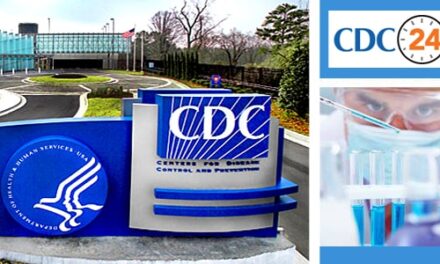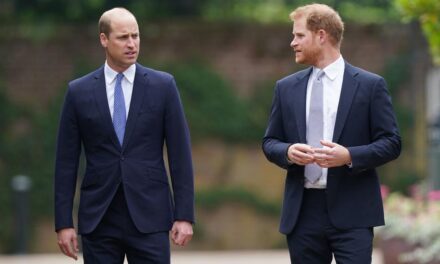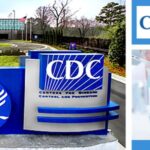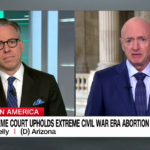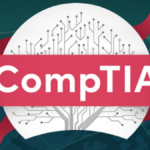
Merck Says Covid Antiviral Pill Is Effective in Trial

Image

The drug maker Merck said on Friday that it would seek authorization for the first antiviral pill for Covid after its drug, known as molnupiravir, was shown in a clinical trial to cut the risk of hospitalization or death in half when given to high-risk people early in their infections.
The treatment could become the first in a wave of antiviral pill products, which experts say could offer a powerful new tool in efforts to tame the pandemic, as they could reach more people than the antibody treatments that are being widely used in the United States for similar patients.
“I think it will translate into many thousands of lives being saved worldwide, where there’s less access to monoclonal antibodies, and in this country, too,” said Dr. Robert Shafer, an infectious disease specialist and expert on antiviral therapy at Stanford University.
Late-stage study results of two other antiviral pills, one developed by Pfizer and the other by Atea Pharmaceuticals and Roche, are expected within the next few months.
The Merck drug, which is designed to stop the coronavirus from replicating, is to be taken as four capsules twice a day for five days.
Merck said an independent board of experts monitoring its study data had recommended that its trial be stopped early because the drug’s benefit to patients had proved so convincing. The company said that the Food and Drug Administration had agreed with that decision.
For the research, the monitors looked at data through early August, when the study had enrolled 775 volunteers in the United States and overseas. For volunteers who received the drug, their risk of being hospitalized or dying fell 50 percent, without any concerning side effects, compared with those who received placebo pills, Merck said in a news release announcing the findings.
Seven percent of volunteers in the group that received the drug were hospitalized, and none of them died, compared with a 14 percent rate of hospitalization and death — including eight deaths — in the group that received the placebo.
The Merck pill’s efficacy was lower than that of monoclonal antibody treatments, which mimic antibodies that the immune system generates naturally when fighting the virus. Those drugs have been in high demand recently, but they are expensive, are typically given intravenously, and have proved cumbersome and labor-intensive for hospitals and clinics to administer. Studies have shown that they reduce hospitalizations and deaths 70 to 85 percent in similar high-risk Covid patients.
Still, Angela Rasmussen, a virologist and research scientist at the Vaccine and Infectious Disease Organization at the University of Saskatchewan, said that antiviral pills could have a greater impact by virtue of reaching more people.
“If that holds up at the population scale,” she said, “that is going to translate to an objectively larger number of lives saved potentially with this drug,” adding that, “Maybe it isn’t doing the same numbers as the monoclonal antibodies, but it’s still going to be huge.”
The federal government has placed advance orders for 1.7 million courses of Merck’s drug, at a price of about $700 per patient. That is about one-third of the current cost of a monoclonal antibody treatment.
Merck — which is developing the pill with its partner, Ridgeback Biotherapeutics of Miami — has not said which patients it plans to ask the F.D.A. to approve the drug for.
It may be initially approved for the limited group of patients who are eligible to receive monoclonal antibody treatments: possibly older people and those with medical conditions that put them at high risk for bad outcomes from Covid. But experts said they expected that the drug might eventually be used more widely, in many people who test positive for the virus.
If authorized, Merck’s drug would be the second antiviral treatment for Covid. The first, remdesivir, must be infused and has lost favor among clinicians as studies have suggested that it offers only modest benefit for Covid patients.
Image
Australia will lift its bans on international travel in November under a plan that Prime Minister Scott Morrison outlined on Friday. It is the second time in 10 days that officials have accelerated the country’s plans to ease travel restrictions.
Until last month, Australia was poised to keep its borders closed into 2022. The tourism minister, Dan Tehan, then said that they could reopen by Christmas.
Once the borders start to open, fully vaccinated Australian citizens and permanent residents will still need to quarantine at home for seven days upon entry. Foreign tourists will not immediately be able to visit, but the government said it was working toward allowing them to come in.
“It’s time to give Australians their lives back,” Mr. Morrison said, announcing that he would begin to reverse a policy that since March 2020 has only allowed some Australians and others to enter the country and blocked all outbound trips except for essential work.
Australia’s tough Covid restrictions, including its strict border rules and local lockdowns, have been praised for helping to contain infections, but have also separated families.
As vaccinations speed up, Mr. Morrison is urging state leaders to ease lockdown measures that have challenged the economy and subjected over half the population to strict lockdown orders for months.
The moves come amid a recent surge of infections nationwide. In Victoria, the state that includes Melbourne, the authorities reported a record 1,438 daily cases on Thursday, a third of which were traced to illegal social gatherings, including parties for last weekend’s Grand Final, Australia’s Super Bowl.
Starting next month, various regions will reopen at different times according to their vaccination rates. States and territories will be able to reopen to international travel once they fully vaccinate 80 percent of their eligible residents.
New South Wales, which includes Sydney, is on track to be the first region to cross the 80-percent threshold and could become the first test for Mr. Morrison’s push to allow Australians to travel internationally. The state has fully vaccinated about 65.2 percent of its eligible residents, according to data released by the Australian officials.
About 44 percent of Australia’s population has been fully vaccinated, according to the Our World in Data project at the University of Oxford.
Image
A British clinical trial found no sign of danger in getting a flu shot and a second dose of a Covid-19 vaccine at the same time, results that support the advice of U.S. health authorities and are welcome news for strained health care workers as flu season hits.
In the study, doctors recruited 679 people from April to June across Britain. At the time, all of the volunteers had received a first dose of a Covid-19 vaccine, either from AstraZeneca or Pfizer-BioNTech, the two vaccines first authorized there.
When the volunteers returned for a second vaccine dose, the researchers also gave half of them a flu shot and the other half a placebo. The researchers then monitored the volunteers for side effects, such as aches and fevers.
“There are no safety concerns raised in this trial,” the authors wrote in their preliminary report, which was posted online on Thursday and has not yet been published in a scientific journal.
In addition to looking at the safety of the vaccines, the researchers also collected blood to measure antibodies to the coronavirus. Some combinations of different vaccine brands led to a slightly lower level of antibodies, and a slightly higher level in other cases. But the researchers did not suspect that any combination of a flu and Covid vaccine would result in a lower effectiveness than each given individually.
The researchers did not speculate about what immune responses people might experience if they get a flu shot at the same time as a third Covid-19 shot, which many people may be doing as countries authorize boosters.
Image
As countries in Asia accelerate their vaccination efforts with an eye toward easing restrictions and fully reopening their economies, some are reporting a rise in new infections.
In South Korea, officials said on Friday that they would extend social distancing regulations for another two weeks starting on Monday, amid the nation’s worst wave of infections. And in Singapore, Covid infections have surged to record highs in the past week, with 2,487 new infections reported on Thursday, the highest number of daily cases since the pandemic began.
The rise in South Korea’s cases has been linked to activities around Chuseok, a holiday celebrating the fall harvest when many families traveled to gather together. Health officials reported 2,486 new daily cases on Friday, the eighth consecutive day the number has exceeded 2,000.
“After Chuseok, the country’s cases have been rising,” said Lee Gi-il, a senior health official at the Central Disaster and Safety Countermeasures Headquarters.
He said the next two weeks would be the “most important turning point” in South Korea’s reopening.
The nation’s capital and surrounding areas will remain under the strictest level of restrictions. Up to six people may gather socially after 6 p.m., as long as at least four are fully vaccinated. Bars, restaurants and other businesses must close at 10 p.m.
The government’s goal is to fully vaccinate 80 percent of the population by the end of October and start lifting restrictions in November. As of Thursday, more than half the population was fully vaccinated, according to health officials.
Covid hospitalizations and deaths remain low in South Korea, and most are among unvaccinated people, according to the health officials’ data. People who are fully vaccinated can still get infected and transmit the virus to other people, though fully vaccinated people are far less likely to experience severe symptoms.
Cases have also been rising in Singapore, where 82 percent of the population was fully vaccinated as of Wednesday, and the government put tighter restrictions in place this week.
The U.S. Centers for Disease Control and Prevention this week advised unvaccinated people to avoid nonessential travel to Singapore.
The new rules there limit gatherings to two people and include a policy of working from home by default. Singapore has also imposed severe restrictions on hundreds of thousands of migrant workers for the past year and a half.
Other countries in Asia are reporting more success in slowing the spread of the virus and are rolling back restrictions. Japan’s state of emergency was lifted this week after a steady decline in new cases, making it the first time since April that the entire country is not under the measure. And Vietnam’s capital, Ho Chi Minh City, started easing its restrictions on Friday.
Image
A federal judge in Rhode Island on Thursday ruled against four health care workers who argued that they should be exempt from a vaccination mandate for religious reasons.
Employees of state-run health care facilities in Rhode Island are required to be fully vaccinated against the coronavirus by Friday, or they could lose their jobs. The workers had claimed in a lawsuit that the state’s vaccine mandate violated their constitutional and civil rights by not allowing for religious exemptions. They had requested a temporary restraining order.
“Mandatory vaccination laws are a valid exercise of a state’s police powers, and such laws have withstood constitutional challenges,” the judge, Mary S. McElroy, wrote in her ruling.
Religious exemptions have been a rising topic of conversation around the United States as government agencies and private employers require workers to be inoculated against the virus and some people contest the mandates on religious grounds. State laws around religious exemptions vary; 44 states and the District of Columbia currently grant such relief.
The four unvaccinated workers, who were not named in the lawsuit, said that the regulation denied them the ability to request exemptions on religious grounds, running afoul of the Constitution and the Civil Rights Act of 1964.
Although the regulation was announced in August, the workers did not file the suit until eight days before the mandate went into effect.
In her decision, Judge McElroy, of the United States District Court in Rhode Island, said that temporary restraining orders were “an extraordinary remedy,” and that the workers had failed to show they would likely win a trial.
Judge McElroy wrote that nothing in the regulation’s language “prevents any employer from providing a reasonable accommodation to an employee who seeks one in accord with their sincerely held religious beliefs.”
She also dismissed the request for a preliminary injunction.
In New York, some Christian health care workers are suing the state, which does not allow for religious exemptions, over its mandate requiring that they get vaccinated. Some of the vaccines were developed and tested using cells derived from the fetal tissue of elective abortions that took place decades ago, and the workers have said that getting the vaccines would run counter to their religious belief that abortion is wrong.
In another case, the N.B.A. denied the request of Andrew Wiggins, a player on the San Francisco Golden State Warriors, for a religious exemption from vaccination. San Francisco requires proof of inoculation to attend large indoor events, including Warriors home games.
Image
A new survey found that more parents were willing to vaccinate their children in mid-September than were willing to do so in July, a shift that coincided with schools reopening in the middle of a wave of hospitalizations and deaths caused by the highly contagious Delta.
The latest monthly survey about vaccine attitudes by the Kaiser Family Foundation also found that about one in four U.S. parents reported that a child of theirs had to quarantine at home because of a possible exposure to Covid-19 since the beginning of the school year.
That is even as two-thirds of parents say they feel that their school is taking appropriate measures to contain the spread of the coronavirus.
The survey found that 58 percent of parents say that schools should have comprehensive mask requirements, 35 percent say there should be no mask mandates at all, and 4 percent believe that only unvaccinated students and staff members should be compelled to wear masks, according to the report. The Centers for Disease Control and Prevention recommended that all students, teachers and staff members in elementary and secondary schools wear masks.
Kaiser conducted a nationally representative survey of 1,519 people from Sept. 13-22 — a time of surging Covid deaths — and it was mostly completed before Pfizer and BioNTech announced that their vaccine was safe and effective for children age 5 to 11. No vaccine is currently authorized in the United States for children under 12. Of those who were polled, 414 identified themselves as parents of children 17 or younger, and were included in the analysis of parents’ responses.
The Pfizer vaccine, already in use for older children and adults, was authorized in mid-May for children age 12 to 15, and the report suggests that over time, parents of children in that age group and older are slowly becoming more comfortable with it. By the time of the September interviews, 48 percent said that their children age 12 to 17 had gotten at least one dose, up from 41 percent in July. According to federal data, 57 percent of that age group has received at least one dose.
And parents of children age 5 to 11 increasingly report favoring the vaccine as well. Thirty-four percent of those parents said they would have their children vaccinated as soon as possible, up from 26 percent in July.
Image
There is a high risk of a surge in new coronavirus cases and deaths in European countries with insufficient vaccination coverage if they relax Covid-19 restrictions in the next few weeks, according to a new report by the European Center for Disease Prevention and Control.
Just over 62 percent of the total population of the European Union is fully vaccinated, and only three of its 27 member countries have fully inoculated more than 75 percent of their residents, according to the agency’s data.
That level of vaccine coverage is not enough to forestall the virus from spreading when Covid-19 restrictions are relaxed, the agency warned, especially now that the highly contagious Delta variant is causing most new reported coronavirus cases on the continent.
“Countries should continuously strive to increase their vaccination coverage in all eligible age groups, regardless of current vaccination coverage levels,” said Andrea Ammon, the agency’s director.
Anticipating surges of new cases, hospitalizations and deaths if precautions are relaxed soon, Ms. Ammon said it might be necessary to keep Covid-19 restrictions in place until the end of November.
The report comes at a time when most children in the European Union have resumed attending school in person, with no coronavirus vaccine authorized yet for use in children under 12. For this reason, the report said that it was especially important for the education system to implement preventive measures. The European Medicines Agency, the bloc’s drug regulator, said last week that it would decide by early November whether to approve the use of the Pfizer-BioNTech vaccine in children under 12.
As a whole, the European Union is well advanced with vaccination efforts; more than 73 percent of the bloc’s adults are fully vaccinated. But there are considerable differences from country to country.
Eastern nations like Romania and Bulgaria are far behind wealthier countries to the west, putting a large portion of the bloc’s population at greater risk. The agency’s report said it was crucial for those countries to increase their vaccination rates, by understanding why residents are not getting vaccinated and by adopting policies tailored to reach groups with particularly low vaccination uptake.
Image
The mayor of Anchorage, Alaska, apologized on Thursday for defending people who chose to wear a yellow Star of David at a town hall meeting to show their opposition to a proposed city mask ordinance.
The mayor, Dave Bronson, a Republican, said in a statement, “We should not trivialize or compare what happened during the Holocaust to a mask mandate.”
“I want to apologize for any perception that my statements support or compare what happened to the Jewish people in Nazi Germany,” the statement read. “I should have chosen my words more carefully, and if I offended anyone, I am truly sorry.”
The apology came a day after a contentious debate at a town hall meeting with the Anchorage Assembly about a proposal to require that face coverings be worn indoors and at large outdoor events, regardless of vaccination status, to combat a surge in coronavirus infections throughout the state.
Several community members at the meeting who opposed the ordinance wore yellow Stars of David, a reference to patches that Jews were forced to wear in Nazi Germany. Across the United States and around the world, some conservatives, libertarians and others opposed to mask and vaccine mandates have been using yellow stars and other Holocaust imagery, drawing condemnation from the Anti-Defamation League and other Jewish organizations. The imagery has shown up at protests in Staten Island and Kansas City, as well as in England, France and Germany. One Republican lawmaker from Washington State issued an apology after wearing the star on his shirt at a protest in June.
The Anchorage Daily News reported that at the meeting, Mayor Bronson, who opposes the mask ordinance, seemed to defend the use of the star imagery.
“We’ve referenced the Star of David quite a bit here tonight, but there was a formal message that came out within Jewish culture about that and the message was, ‘Never again,’” the mayor said, according to the Daily News. “That’s an ethos. And that’s what that star really means is, ‘We will not forget, this will never happen again.’ And I think us borrowing that from them is actually a credit to them.”
The Anti-Defamation League called his comments “disturbing and offensive.”
Image
Tyson Foods has reached a 91 percent vaccination rate for its work force, the latest evidence that corporate vaccine mandates can help increase immunizations in the United States.
When Tyson said on Aug. 3 that it would require coronavirus vaccines for all 120,000 of its U.S. employees, less than half of its work force was inoculated. Nearly two months later, about 109,000 employees are vaccinated, said Dr. Claudia Coplein, Tyson’s chief medical officer.
Tyson’s frontline workers have until Nov. 1 to get vaccinated (or request an exemption), while the company’s roughly 6,000 office workers have until Friday. Unlike some other big companies, Tyson has not faced lawsuits over its mandate, although it has lost a handful of employees, a number that may increase as the deadline nears.
The company added a carrot to its mandate by offering cash incentives and paid time off to those who get vaccinated. Employees with at least one shot at 50 of the company’s chicken-processing plants were allowed to partake in a weekly raffle for a $10,000 award. It also offered fully vaccinated employees a $200 bonus.
Tyson was one of the first major companies to mandate vaccines after incentives like paid time off to be inoculated started to lose traction. Other companies’ broad mandates have reported similar success. United Airlines said this week that 99 percent of its work force was vaccinated, and scores of hospital workers have agreed to a shot after initial resistance. In California, health care employers have reported vaccination rates of 90 percent or higher.
Source: https://www.nytimes.com/live/2021/10/01/world/covid-delta-variant-vaccines





